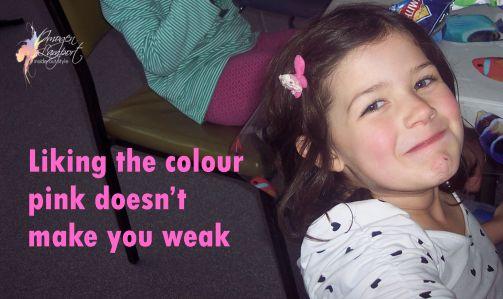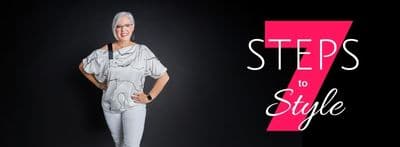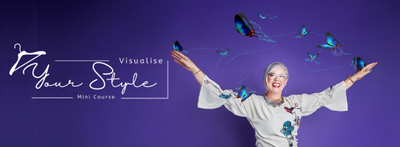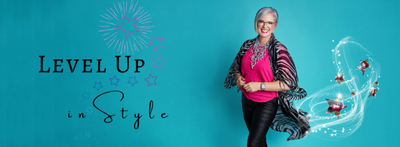
My 10 year old son had to write a speech this week titled “A Fair Go” and he so we were talking about what constituted a fair go. I was explaining to him that fairness and equality are really important and that for a long time there has been (and sadly still is) much unfairness in the world, from racism to sexism (and all the other ‘isms”).
The school my kids attend has around 1/3 of it’s students from a South-East Asian background, his best friend since he was 4 years old is a Muslim from Pakistan, two of our neighbours are Indian, his school world is very multi-cultural and he has grown up with friends of many races, to him, this is normal and nobody is better than anyone else. I discovered that I had a hard time trying to explain why people are racist. To him it’s just crazy talk and a concept he has difficulty understanding.
Then when I was telling him that women in Australia still earn on average 18% less than men, for no reason other than their gender he was shocked. I explained that it was only a little over 100 years ago in Australia that women were allowed to vote in elections (and Australia was one of the first countries to give women the vote). Like all 10 year olds he thought that 100 years was a long time, but when I put it into the perspective of history for him, again he found it a difficult concept to grasp. To him, equality is a right, not a privilege and it reminded me of how many women (and men) still run women down. When I hear people using the word “girl” as an insult (such as “you throw like a girl”) I am reminded of just how far we have to go on the path to equality.
One of the personality styles that I use in my work I call the Feminine. And some women happily embrace their ‘feminine’ yet frequently I’ll hear words from women disparaging the feminine, treating the thought of dressing in anything “girly” as repugnant.
I’ve thought long and hard about why so many women don’t want to embrace their feminine, but want to keep it at arms distance and have had clients tell me some of their reasons for doing so:
- It has helped them build a wall against abusers
- It has helped them compete in education and business
- It has helped them fit in with their family
- It’s more socially acceptable to desire to display more masculine than feminine traits
I was brought up by parents who always told me that I could do anything that I set my mind to and did the work to achieve. This was a great message to have drilled into me. But interestingly, I was subtly discouraged from pursuing ‘feminine’ activities and education and it was suggested to me that doing science and maths (labelled as hard subjects) was more valuable than doing “soft” subjects that related to the qualitative arts (literature, art, fashion, etc.).
My natural interests have always been towards the communication (girly) side of the road and this is one of the parts of image consulting I really enjoy, helping people communicate through their image, their authentic self. I love that clothing and grooming can have such a profound effect on our identity and our self-esteem, and it’s something we have control over (most of the time). The charity I volunteer for, Look Good Feel Better which helps women (mostly) undergoing cancer treatments, is based on the premise that a bit of makeup can help you cope (and the feedback we receive from participants and the popularity of the program attests to this being true).
I love being a woman. I love a chick flick and a bit of chick lit. Yet because of the inequality that still exists between the sexes, ‘girl stuff’ is still considered to be not as valuable as ‘boys stuff” and this saddens me greatly, as it puts pressure on many women to avoid their feminine side. I frequently hear my clients say “I don’t like that frilly, flouncy stuff” as if ‘frills are the only way to display femininity through dress, and that by rejecting that one small element of a clothing style means they have to reject the whole concept of being feminine (a woman).
So it’s time all people stood up and helped make the world a fairer place, the next time you hear anyone use the word “girl” as a derogatory term, please point this out to them and ask them to desist. I am proud to be a girl. I love being female. I really hope that you love being a girl too!
Do you embrace or reject the feminine? If you tend to reject it what are your reasons? What were the messages you grew up hearing about being a female?














I find this post to be so very relevant today. I have lamented the return of the term *girl* to the English language in way not dissimilar from that of 60 years ago. I hear people talk about *girls* and *men* in the same sentence. And there are so many more subtle ways we see women pushed down. Thanks.
Thanks Martha for sharing your feelings. I find it interesting that if a footballer makes a racist slur they are immediately disciplined, but I know here that if they call each other ‘girls’ then that is let slide. Women have come so far, but there is still sadly a long way to go before we are truly equal.
Great article Imogen! I was growing up with mixed messages. The society I was growing up in still sees women as home makers and wives first, but my mother has always managed to slip an occasional “You can do it” every now and again. So I like being a woman, but an open expression of my femininity through clothes is unnatural to me, as if I am trying to find a balance between feminine and masculine.
Thank you for sharing this story. It could not have been timed more perfectly.
Very interesting. My sister always wanted to avoid her girls to be limited to pink, but her eldest lives in frills, pink, fluff, butterflies, bangles, anything dangling – and shows every sign of going to be one tough woman someday.
I myself grew up with the message that I’m equal – but somehow my parents were not. My mum was no role model in this respect, my dad had the ultimate word which may have been the bigger influence than their teachings. Then there was the message that as a woman you had to be twice as good as a guy to make it in business.
I used to wear primarily pants in spite of having a diverse wardrobe. But since doing Jill Chivers’ “My Year without Clothes Shopping” with its personality and style lessons I have started to wear mostly skirts and dresses, dressing in a more feminine way. And I feel perfectly comfortable with it, much more “myself”. I’m in the communication business, too and it has rather helped than hinder my success.
I have always felt that being a feminine woman has given me strength and power. In the past I have used my femininity to my advantage both consciously and subconsciously (rightly or wrongly!). I don’t think I’ve ever felt disadvantaged by being a woman and certainly don’t feel inferior. I embrace everything ‘womanly’ and feel at my most confident when I’m wearing something classically feminine with killer heels!! But I would hope my young daughters will grow up to have the freedom and confidence to make their own choices in life, regardless of whether they choose to express their femininity or not.
Hi Imogen,
This post is so insightful and beautifully written.
Like you I was taught that I could do anything as a woman but please choose something serious like maths and sciences.And as it so happens my sensibilities are more to the arts and literature.
Having a baby girl forced me to evaluate all of this and to come of age so to speak.
Yes, women are discriminated in many ways and feminine traits are to be hidden in our society, and it is very sad because most women don’t fulfill their potential and the world is poorer because of that.
I hope I pass the message to my daughter(by words and acts) that you have to be true to yourself no matter society expectations of what you should be.
Certainly the way you present yourself(and dress) is important but you can be as assertive in a skirt as in a pair of pants.You just have to know how to do it .
Thank you for helping me with the last part 🙂
Sorry, I reject the idea that disliking frilly and girly means I have issues with my femininity. I am very happy to be a woman, very happy to embrace silk scarves and dangly earrings and lace. In small quantities. I just can not bring myself to like bows, or ruffles, or ribbons. This has nothing to do with me having issues with my femininity, and everything to do with personal taste. I also don’t like hyper macho styles on men and that has nothing to do with an aversion to masculinity either.
And I was raised almost perfectly neutrally, and given my freedom to choose my own path in life with almost no input from my parents on what was “appropriate”. I wanted to be a scientist for years during my childhood, but eventually discovered a greater passion for languages and headed in that direction instead. This decision was based on which classes still excited me in June, not on any masculine/feminine issues.
I do like pink. ;o)
Thank you imogen for a wonderful and provocative article that truly hits home. Though we have come quite far in the goal of equality, we have so very much farther to go. Thank you for instilling such kindness and openness to your son. By starting with the youth and eliminating racism and prejudice at an early age, we inspire the next generation to make change the dynamics of equality even further.
I had to share this one on my facebook, Imogen. Great post.
Imogen, your article is very thought provoking. I am sharing to article with my daughter and several of her friends.
Certainly a thought provoking discussion.
I must admit to being perverse, I can’t remember much of my childhood as I’ve blocked the vast majority of it out so I can’t relate it to what I’ve done.
I wear clothes for comfort but as I get older I am tending towards more stylish trousers but I can’t abide pink. When my daughters were very young we had two almost identical tracksuits for them. One was pink with blue trimmings and the other was blue with pink trimmings. I very rarely put the correct top and bottom together but instead mixed them. People would look at the blue and tell me what a lovely boy she was then they’d see the pink and change their mind to girl then look at the blue again and get totally confused, sometimes I’d help them out others I’d just thank them.
Earlier this week a customer bought me a coffee, he had his black and told me coffee with milk was for girls. I can’t think why that rankled…
Imogen
I agree with everything except your reference to chick lit and chick flicks. The term chick does us no favors. And “chick”-specific designations do a disservice to the authors and audiences.
By the way, slate dot com magazine did an interesting piece a few years ago: at the turn of the last century, pink was considered a masculine color. I also know from family history that the US Air Force had a uniform in the 1950s (for men!) called “pinks and tans.” Funny how culture changes and society tries to pigeonhole people.
Janet’s comments resonate with me. I have no problem with being female, but I don’t care for the typical trappings.
I’ve always skewed tomboyish; at 5 I liked toy cars and disliked dolls, but at 14 I was serious about both dance and martial arts. The roles my parents played in their relationship (while they were together) were not based on gender. My mom had the big professional job and my dad mostly had part-time jobs, did the cooking and was at home at lunch to keep me fed. It wasn’t until I was about 11 or 12 that I began to understand traditional gender roles. My parents always empowered me to do what I wanted, I did well in all subjects at school, and I have never felt pigeonholed. As it happens I’m now a professional, in the same field as my mom – an area traditionally dominated by men although it’s now changing.
I read your “F is for Feminine” post with interest. While I appreciate your view that feminine dress goes beyond frills and flounces, I found that didn’t care for most of the looks, and the two I did like (the motorcycle jacket and military style dress) were good – except for the soft colours. I’d wear them in deep colours or black. I never wear pastels, I don’t like lace, I can take or leave florals but the romantic ones are a definite no, I much prefer pleats over gathers. I feel inauthentic in this kind of “feminine” clothing.
It seems to me that part of the issue is to figure out what is actually meant by “femininity”. This term is used as shorthand for a group of traits and the traits on the list vary from person to person and culture to culture. Stereotypically western feminine qualities include being mild, flirty, nurturing, delicate, graceful, weak, dependant, family-oriented, demure, fastidiously groomed etc. How does a person know if she’s feminine without knowing specifically what’s on the list? If a woman doesn’t identify with any or all of those qualities, then how is she to express her femininity? Does she have any femininity? If we say that a woman is not feminine, is that a criticism? Must it be?
As for me, I wouldn’t say that I reject my feminine side. I just like what I like without really thinking about whether it’s “girl stuff” or “boy stuff”.